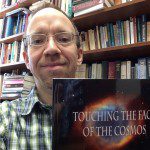I seized the opportunity afforded by the Popular Culture Association conference being in Indianapolis this year to attend the conference for the first time, and in fact presented a paper. Doing so was a fantastic experience – but also gave me a greater appreciation for the AAR/SBL annual meeting, which is much larger and is better organized in certain key respects. For one thing, the conference app was not available as far in advance as would have been ideal, making it hard for someone who had never attended before to plan their days. And even on the conference website, basic information about where and when to find the registration desk (to pick up one’s name badge and so on) could not be found. I did not find out that there was a reception for newcomers until I was already home at the end of the first day and had time to flip through the program book. And so better communication – at least to those attending for the first time – would greatly improve the experience of first-time attendees in particular, but probably everyone.
On a much more positive note, the book exhibit, while miniscule by comparison to that at AAR/SBL, was incredibly cool and different. Searching for items directly related to specific areas we are interested in at a huge conference resembles the proverbial quest for the needle in a haystack. At the PCA conference, each table was fun and fascinating and held my attention, drawing me in. That includes books on topics that I do not work on and am never likely to, but which simply sound incredibly interesting (science fiction in classic rock is but one example). And then there were current and forthcoming books that either relate to things I work on, or suggest avenues that I should and want to explore (here a good example is a forthcoming McFarland book about reading the Bible after Superman).
There were a lot of entire sessions and individual papers that sounded genuinely fascinating, so that (just like at AAR/SBL) there were hard choices to make between options. Among them, the range of approaches and depth resembled what I have seen at AAR/SBL in papers about intersections with popular culture. Some were content to list episodes and note pervasive themes. Some engaged in theory-heavy analyses. Some were focused on the story worlds purely as narrative, while others adopted a more activist stance, both looking at social commentary in particular franchises, films, and episodes, but also going further and engaging in social commentary themselves. For instance, in an exploration of the relationship between dystopian and post-apocalyptic fiction, it was suggested that the seemingly juvenile tendency to think it would be cool to carry guns and fight zombies instead of having to work can be read as commentary on capitalism forcing us to work in jobs we hate doing things that we feel have no real positive impact on the world.
I have not looked closely at enough name badges to know if my hunch about this is right, but I think that work in this area is carried out more by people who teach in contexts that reflect a liberal arts focused interdisciplinary context, whether at a private liberal arts college, or teaching core curriculum humanities courses at institutions that focus on science, technology, and/or professional education. I want to conclude with a thought related to that. I may say more about my own paper on AI and ethics in some later post (as well as other papers I heard). But I will share here something that struck me while at the conference, namely that my focus on Confucius and Socrates alongside Isaac Asimov is a direct result of being able (in fact, required) to teach in the core curriculum at Butler, where I engaged with Chinese philosophy and Plato’s Euthyphro dialogue in a way that I had not before and probably would not have otherwise. I think that points to the vitality and importance of research that emerges in the context of institutions where the primary focus of faculty is not supposed to be research, but teaching. It is surely the combination of broad stretching course prep, and the desire to build bridges to our students and their cultural knowledge and assumptions, that fosters much of the work on popular culture in our time. In a similar way, a conference like this one, because of its broad thematic focus, brings together philosophers (both analytic and continental), historians, scholars of literature, media studies, and religious studies, librarians, and a wide array of academics united by overlapping and intersecting interests, but with different disciplinary backgrounds and who in many instances spend the majority of their time researching and teaching about other things. And so it reminded me of the conferences about the Mandaeans that the ARAM Society in Oxford holds from time to time (the next one is provisionally scheduled for July 12-14, 2019, by the way). At both conferences, there is a shared appreciation for the different perspectives others bring to the focus of our mutual interest.
Let me conclude with a few photos from the book exhibit (and glimpses of Indiana Comic Con). I’ll put all but the first of them on separate pages, lest this post take annoyingly long to load.














